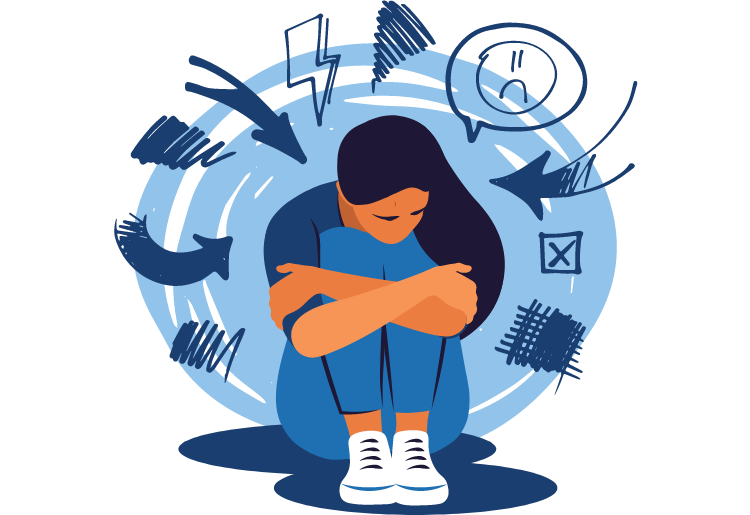1 in 8 Forbes 400 Richest Billionaires do not have a college degree.
But what about the other 7?
What you really need to know is that 7 in 8 of these billionaires did have a degree – that’s statistics!
Unfortunately, the media typically glamorizes college dropouts based on a few success stories. But we’ll talk hard facts. Most college dropouts don’t have success stories. In fact, college dropouts over 25 years of age are 71% more likely to be unemployed and earn at least 32% less than fellow graduates. Another study revealed that among 11,745 US leaders (including politicians, CEOs, millionaires, and billionaires), at least 94% had a college degree – and not from a regular college.
Now, we’re not denying ‘anything is possible.’ It definitely is. But the few iconic stories of insanely successful college dropouts are only a small percentage of the total. They’re exceptions to the rule.
If you want to succeed, dropping out of an education program probably won’t make it happen, and this blog will help you understand why it’s too risky for the average student. So, make sure you read it till the end!
Why Bill Gates Was Not Your Average College Student
When we think of college dropouts, we think of Bill Gates, Steve Jobs, Mark Zuckerberg, and others like them. But these people are exceptions to the rule and don’t truly compare to an average college student. Here’s why:
Bill Gates was born into a wealthy and influential family, which gave him a financial cushion to mess up. He also had an IQ of over 150, which is well above the 100-110 IQ of the average college student. He was a student at Harvard, and he initially only took a break from college but ended up dropping out after he was sure he would never need a college degree.
Steve Jobs’ adoptive family was not filthy rich, but he was raised in Silicon Valley – the global hub for technology and innovation. He secured an internship at HP when he was only 12 years old and was exposed to countless other opportunities from a young age.
Mark Zuckerberg was born rich and got into Harvard, where he worked on Facebook. He dropped out of college after Facebook took off in the market, and he didn’t feel the need to continue. Besides, his father had offered to buy each of his children a McDonald’s franchise, which is a) not cheap and b) would guarantee Zukerberg financial security for life. So, you can tell money was not a problem for him.
Would these people still drop out of college if they didn’t have these privileges? Maybe.
But would they still be insanely successful? Probably not.
In fact, Gates and Zuckerberg only dropped out after becoming successful.
So, before you decide to drop out of college, carefully weigh the pros and cons because there’s no going back (or at least it’s not easy)!
Consequences of Dropping Out of College
To be a ‘successful’ college dropout, the first step is to be born rich with many strong and influential family connections. If not, you must be prepared for the consequences of dropping out of college, which will hit you almost immediately.
What Happens to Your Student Loans When You Drop Out of College?
When you drop out of college, unfortunately, your student loan debt stays with you – it doesn’t just go away. As soon as you drop out, the lender will mark you withdrawn, and your loan repayment period will start. This means you need to begin to pay back the money you borrowed. And while most federal loans have a six-month grace period, your debt can’t be forgiven or canceled at any point since you didn’t finish the program. This will also invariably affect your eligibility for other financial aid programs.
According to estimates, you’ll need to pay between $200 and $600 monthly, depending on your loan type and repayment plan. What makes things even tougher is delaying or defaulting on your payments will increase the interest. Unfortunately, dropouts earn almost $21,000 less than their graduate peers, meaning their average salary is likely around $3,325 before taxes. Then again, reports show that the average US adult needs $3,693 for monthly expenses, including healthcare and entertainment – and that’s already more than the expected salary of a college dropout!
So, it’s not hard to see why 53% of college dropouts can’t manage to pay back their student loan debt installments in a timely fashion – but it doesn’t end here.
What Does This Mean for Your Personal and Professional Life?
If you can’t pay back your loans, what does this really mean?
When former students struggle to meet the payback terms of their student loans, their credit score will most likely take a negative hit. Credit scores are important because they determine your creditworthiness – or how reliable you are. It’s like a guarantee that you’re financially responsible enough to buy things. For example, if you’re buying a car or renting property, your credit score should be high enough. A higher credit score signals that you have enough money to actually pay back your installments on time. It tells the car company or potential landlords that you’re responsible enough to make payments when they’re due. Some employers also ask for your credit score before giving you a job. Besides this, people with lower credit scores (who are not financially stable) have to pay higher interest rates because it’s riskier for lenders to loan them money. So having a lower credit score really does work against you.
Besides affecting the quality of your life, these things also affect relationships. If someone wants to marry you, your credit score will affect their credit score – and that might not be the road most people want to go down. It’s highly likely your partner will not be open to marrying someone with a low credit score – and for good reason, you’ll both end up suffering the negative effects.
Can You Escape The Cycle?
Yes, but the odds are stacked impossibly high against you. The first thing you need to do is repay your student loans and get out of debt, but you’ll need money for that. To make money, you need a job, and a good job will require some type of education. And the jobs you do manage to get, most likely won’t pay you enough to live a good life or make your student loan repayments on time. Eventually, you’ll need to compromise on some living necessities to avoid falling back on your student debt payments. But you’ll need to pay more than the average guy when you want to buy or rent something. So, while some people can definitely build empires from scratch, you’re starting from 6 feet underground!
SimpliTaught Can Make Your College Life Easier
College is hard, and sometimes dropping out may feel like the only solution – we get it, but in fact, it’s not. SimpliTaught, the best online learning platform for students, can help lighten the load of studying and make your college life 10x easier.
SimpliTaught uses artificial intelligence and machine learning to match college students with the right study materials. Our AI finds learning materials related to your textbook concepts from all over the internet. At the same time, our ML records your unique learning preferences and academic needs and personalizes these study materials to help you make more sense of them. This means you can automatically study faster and better!
Contact us at info@SimpliTaught.com for more information.




